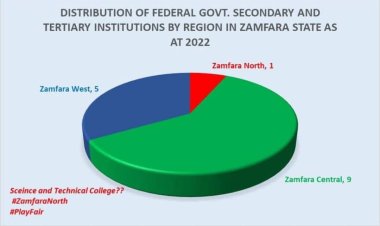Time for Change: Rethinking NYSC Age Limit Amidst Student Strikes

In Nigeria, the National Youth Service Corps (NYSC) has long been a rite of passage, a journey of self-discovery, and an opportunity to serve one's country. For countless Nigerian students, it's a dream they eagerly anticipate. However, this dream can turn into a nightmare when the rigid NYSC age limit policy comes into play. While the NYSC serves a vital purpose, it's essential to revisit policies that may inadvertently hinder the aspirations of diligent students who, through no fault of their own, find themselves caught in the crosshairs of prolonged strikes during their university years.
The NYSC Age Limit Predicament:
The NYSC's current age limit policy, which caps eligibility at 30 years, is straightforward on paper. However, when examined in the context of the country's education system, it becomes evident that this policy may need reevaluation.
The Impact of Prolonged Strikes:
- Lost Years: Over the years, Nigerian universities have faced numerous strikes, sometimes stretching for several months or even a full academic year. Students are forced to stay home during these strikes, unable to complete their studies or graduate on time.
- Unintended Consequences: For students affected by these strikes, reaching the age of 30 before graduation is a genuine concern. They are caught in a paradox—struggling to complete their education while racing against the clock to meet NYSC age requirements.
Reviewing the NYSC Age Limit Policy:
1. The Case for Flexibility:
- Education vs. Age: Education is a fundamental right, and students should not be penalized for circumstances beyond their control. A flexible approach to age limits can enable deserving students to serve their country.
2. Consideration for Waivers:
- Merit-Based Exceptions: NYSC could consider exceptions or waivers based on academic performance, commitment to national service, or other merit-based criteria.
3. Gap-Year Allowance:
- Options for Delayed Service: Introducing a gap-year provision could allow students who exceed the age limit due to strike-induced delays to defer their NYSC service until after graduation.
4. Advancing National Goals:
- Harnessing Talent: Nigeria stands to benefit by harnessing the talents and skills of its youth, including those who exceed the current age limit.
The NYSC program is a significant national initiative designed to foster unity, patriotism, and national development. However, policies that unintentionally restrict the participation of bright, diligent students due to prolonged strikes during their academic journey should be reviewed. It's time to engage in a thoughtful dialogue on NYSC's age limit policy to ensure that deserving young Nigerians are not unfairly denied the opportunity to contribute to their country's progress. Balancing the principles of education, fairness, and national service is essential in evolving the NYSC into a more inclusive and equitable institution for all.





